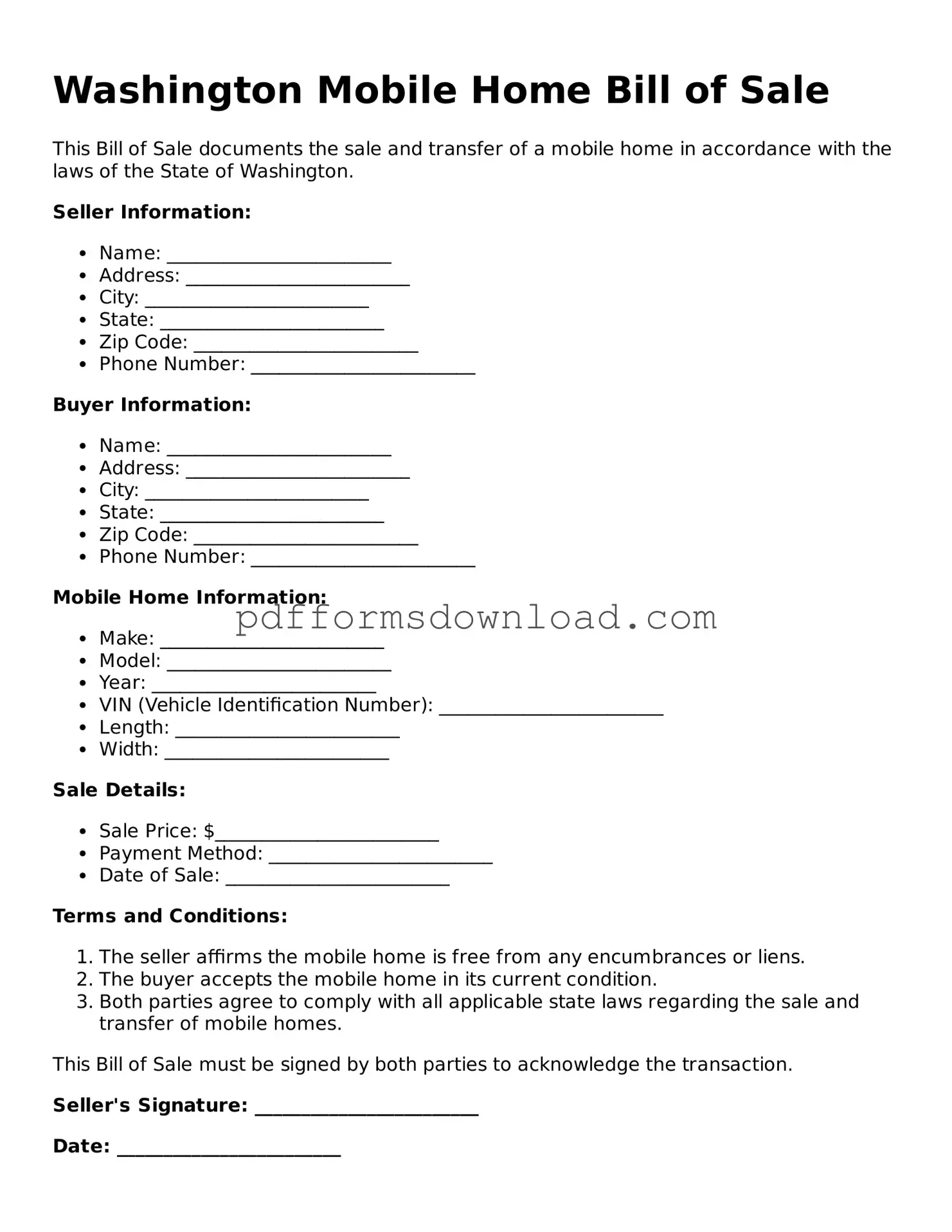Printable Washington Mobile Home Bill of Sale Form
The Washington Mobile Home Bill of Sale form is a crucial document that facilitates the transfer of ownership for mobile homes in the state of Washington. This form not only provides a legal record of the transaction but also ensures that both the seller and buyer are protected during the sale process. Understanding how to properly complete this form is essential for anyone involved in the sale or purchase of a mobile home.
Ready to take the next step? Fill out the form by clicking the button below.
Make This Document Now

Printable Washington Mobile Home Bill of Sale Form
Make This Document Now

Make This Document Now
or
Free PDF File
Your form is almost ready
Complete your Mobile Home Bill of Sale online — edit, save, and download easily.